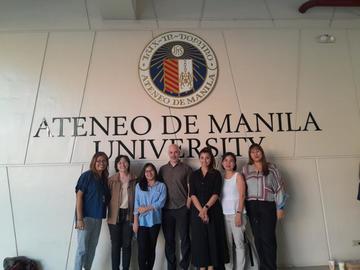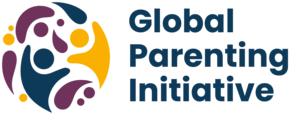Reported by Saara Thakur
Last month, Dr Jamie Lachman and Saara Thakur from the GPI Accelerate team visited GPI country teams in the Philippines and Thailand to co-convene stakeholder and advocacy meetings and kick-start scaling initiatives with each partner.

In the Philippines, the team conducted internal meetings with Professor Liane Peña Alampay, Jennel Reyes, and other colleagues from Ateneo De Manila University and Dr Bernadette Madrid. The meeting helped identify the steps to build on the success of the previously deployed Masayang Pamilya (MaPa) programme as part of the Department of Social Welfare and Development (DSWD) Pantawid Pamilyang Pilipino Program's (Philippine CCT) electronic Family Development Sessions (eFDS) programme, for 4 million families in 2022.
The Accelerate team had their first GPI scaling workshop, guided by the Management Systems International framework. The workshop helped identify missing gaps and internal resources, prioritise scaling pathways, and plan next steps to achieving scale in the Philippines. One potentially exciting development is the integration of the MaPa curriculum into the new 7-year conditional cash transfer programme called the Transformative Learning Path (TLP).
There was also a very successful meeting with the UNICEF Country Office, where the Accelerate team met with Oyunsaikhan Dendevnorov, Country Representative, Behzad Noubary, Deputy Representative of UNICEF Philippines, as well as members from the Child Protection, Nutrition, Early Childhood Development, and Education teams. UNICEF colleagues took a keen interest in further understanding PLH’s plans to scale parenting solutions in the country and explored ways to collaborate with one another.
The Accelerate team also had an exciting few days in Thailand where they co-led a steering committee meeting with colleagues from the Peace Culture Foundation and Chiang Mai University. The meeting brought together important stakeholders from various government ministries, academia, NGOs, and colleagues from UNICEF. Together, in a workshop setting, they discussed viable scaling pathways, drivers, and challenges to scale, and identified potential channels, policy tools, and stakeholders necessary to ensure the success of their scaling initiatives. The team recorded everyone’s responses and will utilise their expertise to inform their future scale-up strategy.
In addition, the Accelerate team met with colleagues from the UNICEF Country and Regional office in Thailand. Both meetings involved sharing of current plans and exploring ways to align their efforts in the country as well as the region to ensure they collaboratively deliver the most impactful solutions to families and children.
These trips followed the team's trip to Malaysia, in February where they initiated the Naungan Kasih at Scale Project in collaboration with Parenting for Lifelong Health, Universiti Putra Malaysia, the Malaysian Association of Social Workers, and UNICEF. Co-funded by The LEGO Foundation,The Human Safety Net, and UNICEF Malaysia, the project aims to provide universal access to parents by scaling human-digital hybrid parenting solutions to improve development outcomes for children ages 0 to 5 years in Malaysia. The Accelerate team met with a group of collaborators and colleagues from various organisations such as UNICEF, UNHCR, LPPKN, KEMAS, MASW, UPM, and Generali Malaysia.
Overall, the visits to the Philippines, Thailand and Malaysia were very productive for the GPI Accelerate team. They were able to connect with colleagues and partners to collaboratively plan for the future of the project and lay the foundation for successful scaling initiatives in each country.




